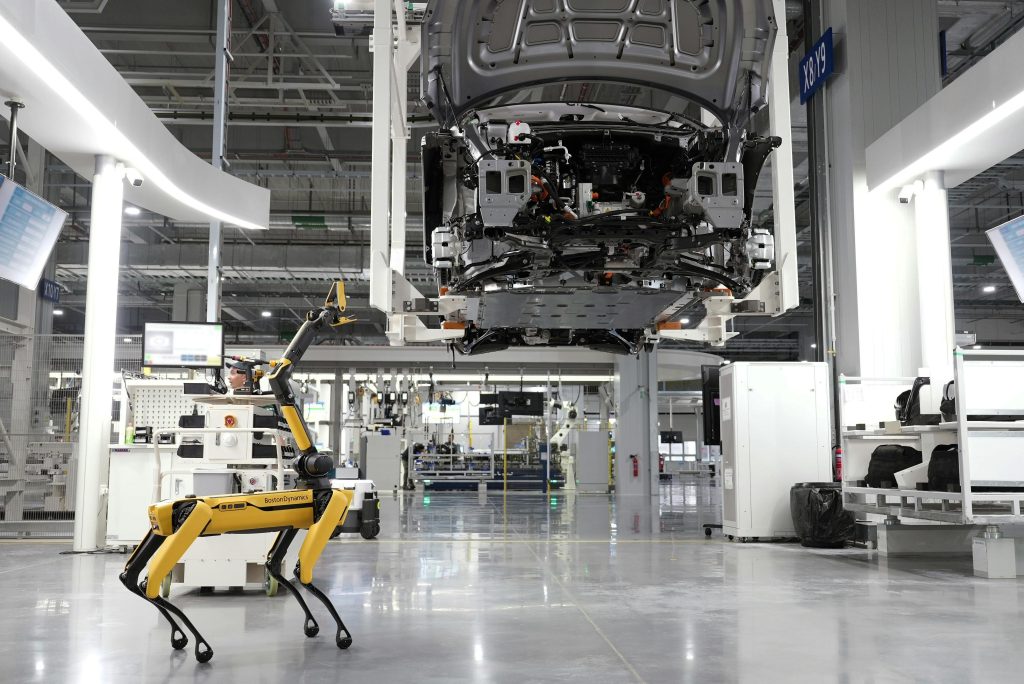In today’s fast-paced industrial landscape, the integration of smart plant management systems is revolutionizing how businesses operate. These systems, powered by advanced technologies like the Internet of Things (IoT), artificial intelligence (AI), and data analytics, are enhancing productivity, streamlining operations, and addressing the challenges of global supply chains. As industries evolve, the adoption of smart plant management is becoming a cornerstone for achieving operational efficiency and staying competitive in a rapidly changing world.
The Evolving Landscape of Global Supply Chains
Global supply chains have undergone significant transformations over the past decade. The rise of globalization, coupled with advancements in technology, has created a highly interconnected network of production and distribution. However, this complexity has also introduced challenges such as supply chain disruptions, fluctuating demand, and the need for real-time decision-making.
The COVID-19 pandemic exposed vulnerabilities in traditional supply chains, highlighting the importance of resilience and adaptability. Companies are now prioritizing technologies that enable better visibility, predictive analytics, and automation to mitigate risks and improve efficiency. Smart plant management systems are at the forefront of this shift, offering solutions that optimize production processes and enhance supply chain agility.
Addressing Global Supply Chain Challenges with Smart Plant Management
- Real-Time Monitoring and Predictive Maintenance
One of the key features of smart plant management systems is their ability to provide real-time monitoring of equipment and processes. IoT-enabled sensors collect data on machine performance, energy consumption, and production rates, allowing operators to identify inefficiencies and address issues before they escalate. Predictive maintenance, powered by AI, further reduces downtime by forecasting equipment failures and scheduling repairs proactively. - Enhanced Supply Chain Visibility
Smart plant management systems integrate with broader supply chain networks, providing end-to-end visibility. This transparency allows companies to track raw materials, monitor production progress, and manage inventory levels more effectively. By leveraging data analytics, businesses can make informed decisions, reduce lead times, and respond swiftly to market changes. - Automation and Workforce Optimization
Automation is a cornerstone of smart plant management. Robotic process automation (RPA) and AI-driven systems handle repetitive tasks, freeing up human workers to focus on strategic activities. Additionally, these systems optimize workforce allocation by analyzing production schedules and identifying areas where human intervention is most valuable.
- Sustainability and Energy Efficiency
As environmental concerns grow, smart plant management systems are helping industries reduce their carbon footprint. Energy management tools analyze consumption patterns and suggest ways to minimize waste. By optimizing resource usage, companies can achieve sustainability goals while lowering operational costs.

The Future of Global Supply Chains: A Smart Approach
The future of global supply chains lies in the seamless integration of smart technologies. As industries embrace digital transformation, the following trends are expected to shape the landscape:
- Digital Twins for Simulation and Optimization
Digital twins virtual replicas of physical assets are becoming essential for supply chain management. These models simulate production processes, enabling companies to test scenarios, identify bottlenecks, and optimize operations without disrupting actual workflows. - Blockchain for Transparency and Security
Blockchain technology is gaining traction for its ability to enhance transparency and security in supply chains. By creating immutable records of transactions, blockchain ensures traceability and reduces the risk of fraud or errors. - AI-Driven Demand Forecasting
AI-powered tools are revolutionizing demand forecasting by analyzing historical data, market trends, and external factors. Accurate predictions enable companies to align production with demand, minimizing overstocking or stockouts. - Collaborative Ecosystems
The future will see increased collaboration between suppliers, manufacturers, and distributors. Smart plant management systems will facilitate data sharing and coordination, creating a more cohesive and responsive supply chain network.

Conclusion
Smart plant management systems are transforming the way industries operate, offering solutions to the challenges of modern global supply chains. By leveraging real-time monitoring, automation, and data analytics, businesses can enhance productivity, improve efficiency, and build resilient supply chains. As technology continues to evolve, the adoption of these systems will be critical for staying competitive in an increasingly complex and dynamic industrial landscape.
The future of global supply chains is undeniably smart, and companies that embrace this transformation will be well-positioned to thrive in the years to come.
References
- “The Role of IoT in Smart Manufacturing” – IoT Analytics
- “How AI is Revolutionizing Supply Chain Management” – Forbes
- “Blockchain in Supply Chain: Benefits and Use Cases” – Deloitte
- “Digital Twins: The Future of Industrial Automation” – McKinsey